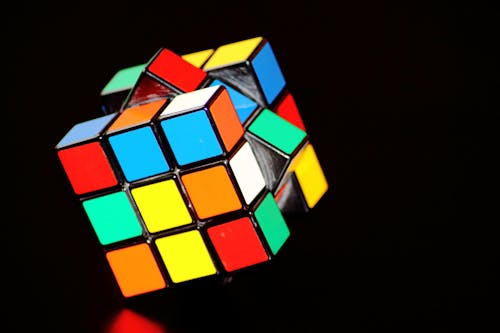This is an older post from The Creative Independent blog, and I hope they don't mind me posting an excerpt here. It seems relevant for those who might be using this time to think up new income streams – or rethink your entire creative practice.
From the longer article, ‘How to Recession-Proof Your Creative Practice’ is the following section on ‘serious play’. Creativity is about combining previously unconnected elements. If we combine our own previously unconnected interests/activities/habits, maybe we can come up with some new avenues for our creative practice?

Serious Play
"Recessions begin with widespread pessimism and survival, and end with optimism and opportunity. As the recession ends, those who survive make plans to grow again. Apple is famous for developing new products during a recession and launching them just as it ends. The first iPod was launched in October 2001, just as an eight-month recession was coming to an end. To get to your own iPod idea, try this creative practice—Serious Play.
Learning by playing has its roots in the kindergarten, Montessori, and Waldorf children’s school movements of 19th-century Europe. But it was “Homo Ludens,” “Humans the Players,” by Johan Huizinga in 1938 that showed how important play is to generating culture. In play, you can change the rules of the game or even create a whole new game. Plus, you can change the playground, the space where you play.
Play is actually one of the most productive things you can do in a recession. My favorite game is called “match up.” Much, maybe most, innovation involves just two steps: Take an old product or business, and match it to a new technology. Amazon began when Bezos took book selling in stores and stuck it on the internet. Zuckerberg took physical photo sharing and poured it through the internet. Listening to music? Hook it up to the net. Transportation? Zip Car, Uber. Renting? Airbnb.
Of course, you don’t need technology to play. Eddie Huang took the traditional Taiwanese meat-filled gua boa, started filling it with Niman Ranch pork belly and Cherry Coca Cola, and named his restaurant Baohaus. I just had my first iced cardamom coffee float at Hampton Chutney in Amagansett. How did these ideas come about? Play.
Serious play is a method of designing the future. And that is how you should spend your time in recession: designing your future."


Heather Dyer teaches Writing for Children for the Open College of the Arts, and provides writing and publishing advice through The Literary Consultancy, The Writers' Advice Centre for Children's Books, and privately. If you’re ready for feedback on your work-in-progress contact Heather at heatherdyerbooks@gmail.com.
For further information, see Heather's blog at Writing for Children: Creative Inspiration for Children's Authors.


3 comments:
Ooo I like this! Thanks, Heather!
Thanks Joan. So many people are having to be creative and think on their toes at the moment. Necessity is the mother of invention, they say...
It's pretty serious breach of copyright to post such a long extract here without permission. A link to it and discussion afterwards would have been better. As writers, we grumble about people stealing our stuff (quite rightly), so shouldn't do it. It's easy to think that work has no 'value' that you are undermining if it is freely available online, but that's not true. If you had linked to it, they would have got the benefits of the hits (useful for advertising revenue, for if a publisher or other wants to see their stats) and THEY would have been able to see feedback on their ideas rather than you. Their moral rights mean they should be able to choose where their work appears. I know it's not likely they will have any particular objection to ABBA, but they might — it's their prerogative to choose the context in which their work appears. I know you did this with the best intentions, to bring potentially useful information to our attention. But I think we all need to be a bit more thoughtful about reusing content produced by other creators if we want people to take our ownership of our own work seriously.
Post a Comment